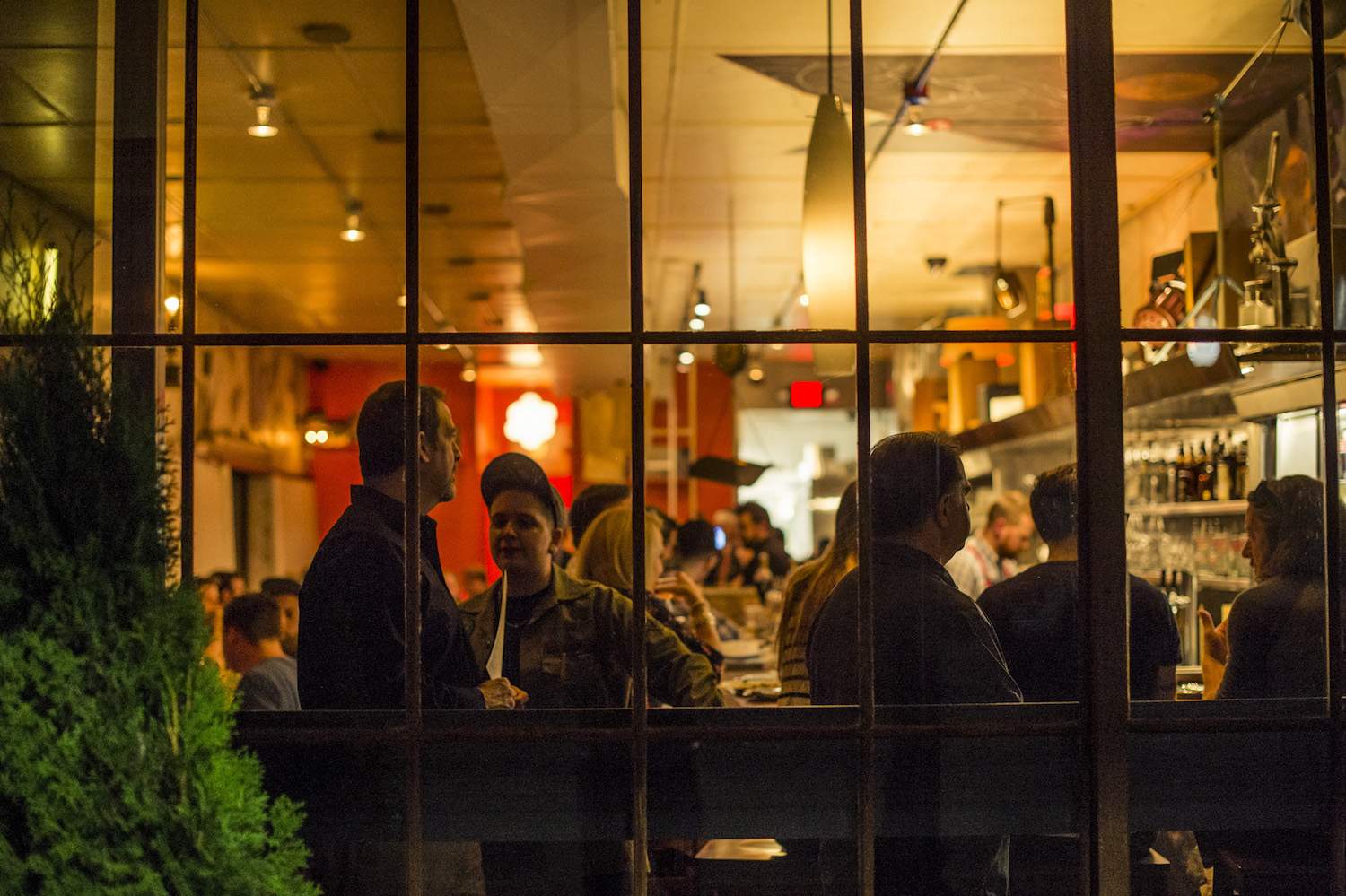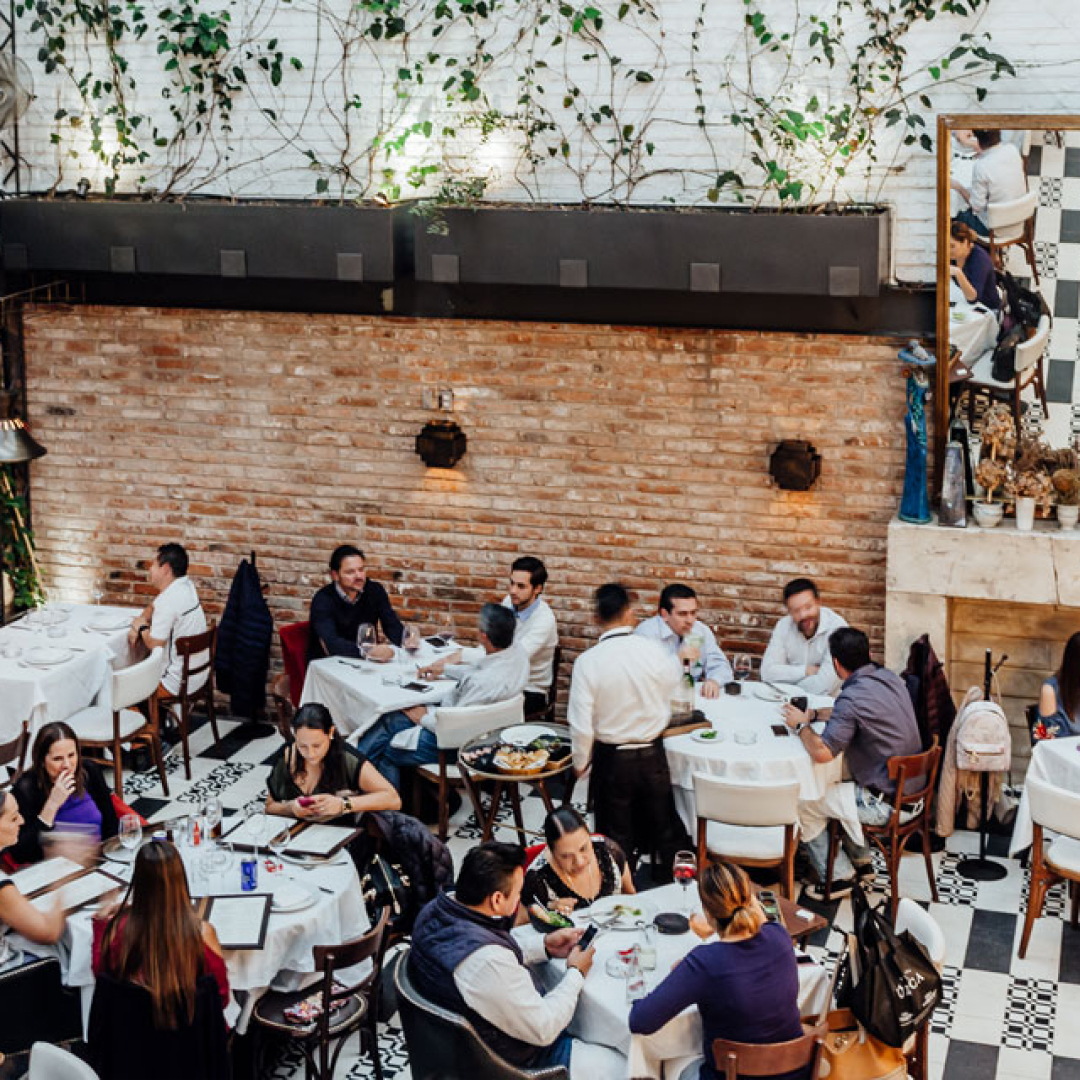Detroit and its surrounding suburbs represent one of the vastest and most diverse collections of neighborhoods in America. The automotive industry retains its strong presence in the city, but that is now accompanied by the presence of dozens more companies in the tech, education, and healthcare sectors. The suburbs are developing alongside the city, with big opportunities in both areas, and a growing population eager to see Detroit become the next big dining destination.
Only a little while back, however, this was not the case, according to James Rigato, Chef of Mabel Gray. “Five years ago, you couldn’t get an investor to come in. It was a risky market.” Now, “we have a captive audience,” he says. “There’s a lot of real estate available, there are growing markets—that lower cost of development means the food scene is really up and coming.”
And with industry booming but property still relatively affordable, it’s never been a better time to be a restaurant owner, according to Luciano DelSignore, Chef/Owner of Bacco Ristorante. “Having a restaurant in this market is really advantageous,” he says. “I see Detroit going no other way but up—there will only be more of a need for restaurants.” The city, he adds, is developing to meet the needs of the restaurant industry, with places like Eastern Market, which makes sourcing high-quality, local meat and produce very convenient.
And while the city has moved beyond just its automotive reputation, the industry serves as a resource for businesses of all kinds, Rigato says, with automotive architects and contractors often crossing over into restaurant construction, or car designers who can also build websites. “Everyone here has a blue collar attitude,” he says. “We are very much hand in hand and supportive of each other.”
Detroit is teeming with opportunity for restaurateurs. As Paul Howard, co-owner of Cliff Bell’s puts it: “It’s a market where you can pretty much do anything, and there is a good chance no one is doing anything like it.”
The challenges
With an ever-growing city like Detroit, there are certainly challenges associated with the consistent and rapid development. On the governmental side, the state is still struggling to keep up with the evolving food industry.
“The health department here operates on a 2009 food code,” Rigato says. “Things like fermentation and sous vide — they don’t know to police it — chefs often have to bootleg it.” This is “largely due to the fact that the city government is overwhelmed,” he adds. “There is a limited budget, and of course there are setbacks like the Flint water crisis. It’s a discombobulated time.”
Similarly, the labor force has not quite caught up to development, especially in the city, DelSignore says. “There just aren’t enough people to work at all of the restaurants,” he says. “You are having to reach out to the suburbs and pull in people who are willing to drive in. The business aspect has grown quicker than the residences.”
And the population is still getting used to Detroit’s relatively new and robust dining scene. “There’s now a lot more business on weekend nights, but we still see empty seats during the week,” Howard says. “But I think things will improve over time.”
The relative youth of the restaurant scene presents both a difficulty and an opportunity, though. “It’s like the Wild West of dining scenes, “ Rigato says. “There are not a lot of restaurants pushing boundaries, and there is a lot of white noise, a lot of corporate steakhouses.” That means that there is a real space for talented, up-and-coming chefs with a clear point of view to gain solid footing in the city.
Tips for success
1. Go for the suburbs. According to Rigato, a lot of Detroit’s most promising neighborhoods are outside of the city itself. Plus, the rent is cheaper and local governments are less burdened, making permitting a lot more streamlined. “I can take bigger chances out in the suburbs,” he says. “It’s a lot like how Brooklyn is in New York.”
2. Build a restaurant around talent. Detroit is full of chains and one-off steakhouses where the owners are “trying to open a cash machine and make their dollars off of minimum-wage employees,” Rigato says. They key to building customer loyalty and creating a successful restaurant in Detroit, he says, is to “find talent and build a restaurant around them. We need to invest in our talent pool, and educate and inspire the labor market.”
3. Put down roots in the neighborhood where you choose to open your restaurant. Though it’s not always possible to live in the same place as your business, DelSignore says that given the enormous size of Detroit, if you are “part of the fabric of the community, the people will be more likely to accept and love you. Detroiters are not looking for outsiders—they are looking for people who are contributing to the neighborhood and supporting everything that’s going on.”
4. Don’t open a concept that will require boatloads of staff. “Be efficient with the labor force that you have,” Howard says. “There just isn’t that much to choose from right now.”
5. Commit fully to your restaurant’s concept. “Detroit has a strong sensitivity to being vacated or abandoned, as that happens a lot here,” Howard says. “They are very skeptical to any of those fly-by-night or pop-up concepts. The businesses that are embraced thoroughly are those where there is an obvious stake in the ground, and a clear investment. Make sure any renovation feels solid and permanent—if it feels like it has a timeframe, it won’t work as well.”
Photo Credit: Mabel Gray courtesy of Joe Vaughn.




